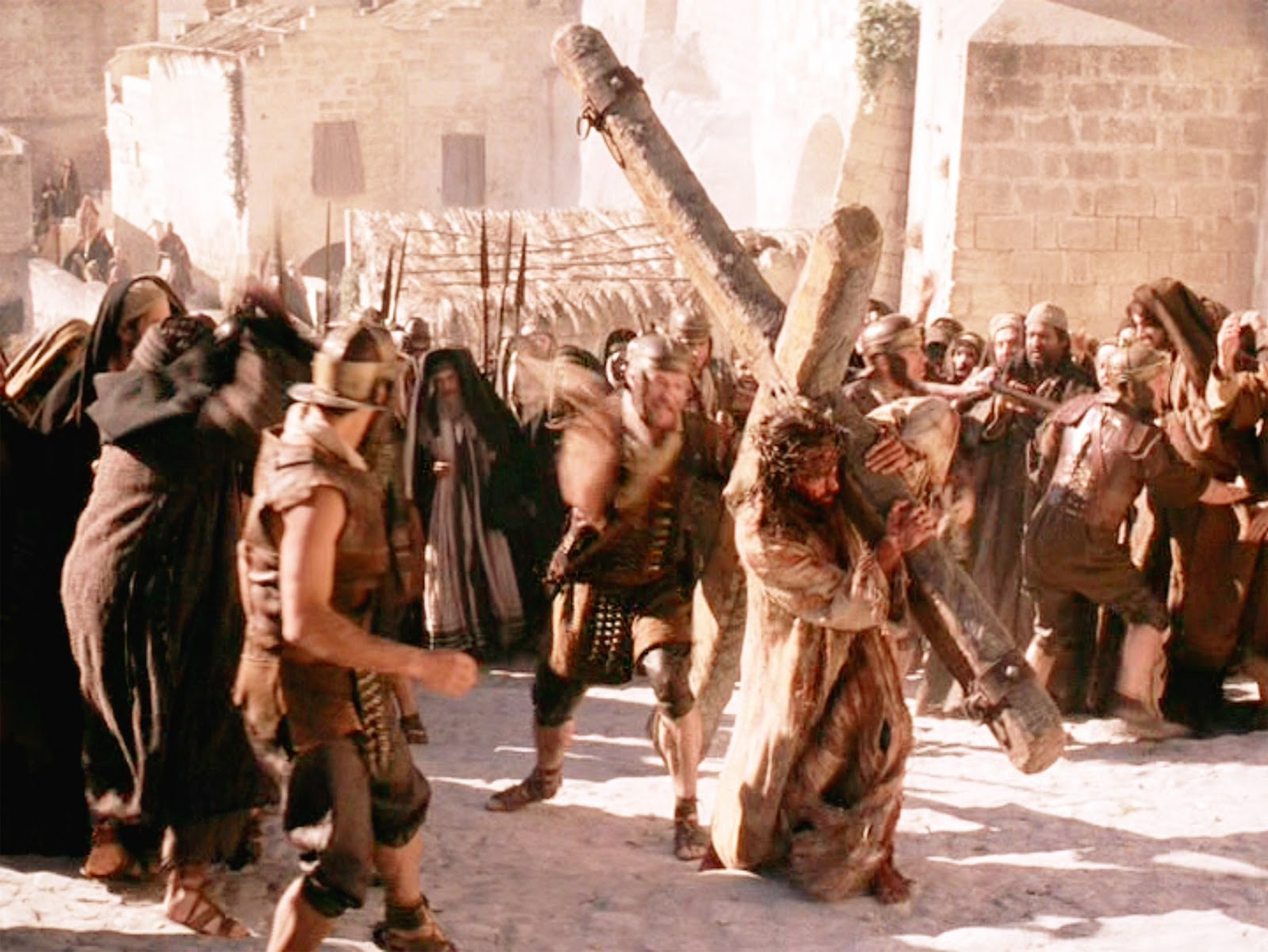Both of my kids have asked me this question many times; "Why did Jesus have to die?" It's a simple question really. I imagine the thought process beh
 Both of my kids have asked me this question many times; “Why did Jesus have to die?” It’s a simple question really. I imagine the thought process behind it is that if Jesus didn’t die on the cross for our sins, he would still be here today, ruling as King of kings from Jerusalem. Naturally, I gave them the Biblical answer to this question. Jesus died to atone for our sins, to pay for them, so that we wouldn’t have to. Their response: “Couldn’t God just forgive us without Jesus dying?”
Both of my kids have asked me this question many times; “Why did Jesus have to die?” It’s a simple question really. I imagine the thought process behind it is that if Jesus didn’t die on the cross for our sins, he would still be here today, ruling as King of kings from Jerusalem. Naturally, I gave them the Biblical answer to this question. Jesus died to atone for our sins, to pay for them, so that we wouldn’t have to. Their response: “Couldn’t God just forgive us without Jesus dying?”
Okay, now we have every Christian parent’s nightmare. Your child has just stumped you with a perfectly logical and simple question. What do you do? In the past, I would refer to the Old Covenant, with the sacrifice of animals, telling them that with Jesus’ eternal sacrifice now done, we don’t have to do that any more, etc. That answer never seemed to get very far.
I’ve resorted to a new explanation that gets down the the heart of the matter in a very simple way, and it has to do with comparing holiness to honour. It goes like this. Just as God is holy, so men can be honourable. Nowhere do we see the illustration of honour more clearly demonstrated than in the military. So let’s do an illustration.
Suppose one army private tells another to do something, and the other private refuses. Now the two may argue over this, but in the grand scheme of things, it’s just a personal dispute. No honour is lost because no real offense has been given. The two men of equal rank are just having a spat. Now, suppose an army sergeant comes along and decides to tell both privates to do something. One private obeys and follows the order. The other private doesn’t. Now we have a problem, and here is the reason why. The sergeant outranks the private, and holds a position of higher enlisted honour. The private’s disobedience has dishonoured not only the person of the sergeant, but also the rank, or position of honour he holds. Therefore punishment will be necessary; both to teach the private a lesson that obedience is necessary, and it will have to be something appropriate to the dishonour and offense that was given. The private may find himself doing 100 push-ups (if he’s lucky), or perhaps something more gruelling. However, suppose that wasn’t a sergeant that came along and gave the order the private disobeyed.
Suppose it was an army captain or a major. Now we have a much bigger problem. Because the rank is higher, the offense and dishonour created by the private’s insubordination is greater. Therefore the punishment will be greater. Perhaps a court-martial will be in order. Now suppose it wasn’t a sergeant, or a captain, or a major, but rather a five-star general! Disobeying a direct order from a five-star general is certainly a greater offense and demonstrates greater dishonour for the private who gave such great offense to this highest ranking officer. A court-martial would be the least of his troubles. That private could expect the most severe punishment possible. Why? His disobedience is the same, whether it’s with the other private, sergeant, captain, major or general. It’s the same act. It’s the same stubbornness. It’s the same thing all around. Except the person he did it to is different. As the rank of the officer offended increases, that offense becomes greater. Likewise, the punishment becomes greater as well, because the rank of the officer offended is higher.
Well, sin is kind of like that. Sin is a word that defines and act (or omission) that directly offends the Person of God. However, God is the ultimate rank. He is the Creator of the universe. When one disobeys God, the offense is infinite, because God is infinite. His “rank” is infinite. Like the private who found that his same disobedience obtained for him greater consequences as the rank of the officer he disobeyed got higher, so we find that our sins, which may not seem like such a big deal to humanity, actually carry with them an infinite offense to God, when he is the one who is disobeyed. What kind of punishment would infinite offense earn? Why it would earn infinite punishment of course, and this is what we call Hell.
So let’s get back to my child’s question. Why couldn’t God just forgive us? Why did he want to sacrifice his divine Son? Well, the answer is simply this. God is God, and he can do whatever he wants. So yes, if God wanted to simply forgive us for our sins, and the original sin of Adam and Eve, he could have just wiped the slate clean and forgiven us. That would have been it — the end of the story. Did God NEED a sacrifice? Well, no. He’s God. He doesn’t NEED anything. However, if he had done that, what would that have taught the human race?
I can tell you with a fair degree of certainty that it would have taught humanity that sinning against God is “no big deal.” If you sin, don’t worry about it, because God will just forgive you. That would have been the lesson man was taught: sin = no consequences. While humanity would constantly be giving infinite offense to God, who is infinitely honourable and should never be offended, life would just go on with humanity oblivious to the seriousness of its disobedience.
So, instead of just forgiving humanity outright, God instead decided to both forgive, and at the same time teach humanity how serious its sins are, and the magnitude of the penalty that our sins incur.
 Let’s go back to the five-star general again. So the private is now in his court-martial for disobedience to the general’s order. He is found guilty and sentenced to 30 lashes with a whip. (For illustration’s sake, let’s just assume the year is 1850 and corporal punishment with whips is still allowed in the military.) The private is led to a post, where his hands are to be tied and his back exposed. However, just before he is about to be tied, the five-star general shows up, and asks what his sentence is. The sergeant says: “30 lashes with a whip.”
Let’s go back to the five-star general again. So the private is now in his court-martial for disobedience to the general’s order. He is found guilty and sentenced to 30 lashes with a whip. (For illustration’s sake, let’s just assume the year is 1850 and corporal punishment with whips is still allowed in the military.) The private is led to a post, where his hands are to be tied and his back exposed. However, just before he is about to be tied, the five-star general shows up, and asks what his sentence is. The sergeant says: “30 lashes with a whip.”
The general then takes off his shirt, puts his hands on the post, and then orders the sergeant to administer the disobedient private’s punishment upon him. The sergeant resists at first, but the general insists this as an order, and if he doesn’t obey, he too will find himself before a court martial. The sergeant reluctantly agrees and administers the private’s lashings on the general’s back. The debt is paid in full, and the private escapes unscathed. What this general has done is two things. He has on the one hand upheld the law and demonstrated the severity of what disobedience incurs. On the other hand, he has shown mercy to the private (a mercy he did not deserve) by taking the punishment for him and in so doing, forgiving his offense.
This is exactly what God did for the human race. The offense of sin against God is infinite. Therefore the punishment is infinite. There is no human that could pay this price, not even for himself, let alone his friends and relatives too. So God himself became incarnate and took on human flesh. Becoming fully human, but simultaneously remaining fully God, he now could pay the infinite penalty for the infinite offense. By becoming a human being, he does this on behalf of humanity. By dying on a cross, he demonstrated to all of humanity, as well as the angels and all of creation, that the offense of sin (disobedience to God) is infinite, because God is infinite, and therefore the punishment is infinite. God himself paid this infinite punishment by shedding the blood of his own incarnate Son (God himself), the value of his blood being infinite.
Now the human race can obtain forgiveness for its sins, but to do this, people must accept that forgiveness through the shed blood of Jesus Christ, thereby acknowledging the infinite offense against God their sins have caused. God has done two things. He has taught us how serious our sin (offense against God) is, and at the same time forgiven us for this infinite offense.
In all of this it’s important to recognise what sin is, and that is defined for us by his Church, which gave us the Bible and all of the Traditions that go along with it. By defining sin, God gives us clarity through his Church, so we know what really offends God and what does not. Then we look to the infinite sacrifice of Jesus Christ that paid for our infinite offense. Our offense against God is forgiven, but because of this method, we begin to understand just how serious our offense is. By teaching us that, God moves us toward repentance and change toward the better.
Now this doesn’t answer all of my child’s questions about why Jesus had to die, but is does give us a foundation to work on. I hope this illustration has been useful to you.
.
.
Culled from https://catholicozarks.blogspot.com.ng

COMMENTS